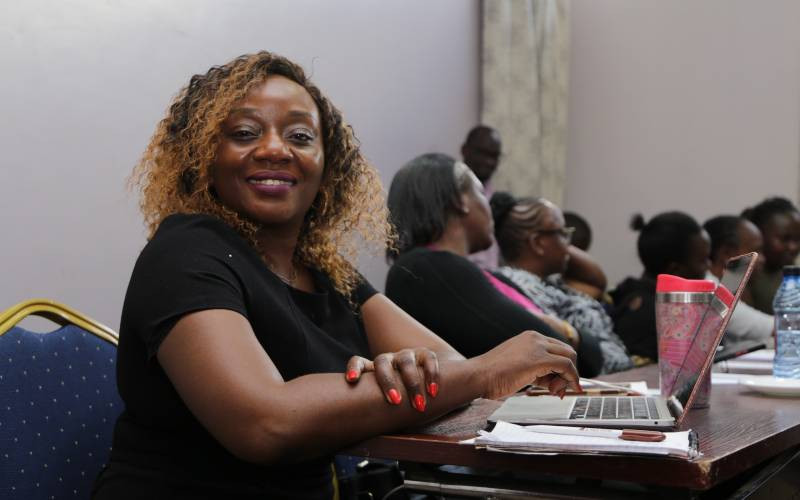A sad reality of being a media personality is that you tend to live a lie much of the time.
With the possible exception of TV anchors and reporters, the public is largely unable to form a mental image of their media “stars.”
This is especially the case with columnists and the better known reporters, many of whom are in the flesh a far cry from what that little picture byline suggests.
I once wrote about an incident when, as an editor of a rather well-received full-page column called Off the Wall in the 1990s, I was visited by a fan who on the phone had claimed to have some information that would be of great interest to me.
It turned out that the middle-aged Asian man was most probably gay, and had been misled by the picture byline (which, if truth be told, had been touched up quite a bit by an artist) to expect a good looking fellow.
As it turned out, the encounter was a total disappointment to both of us — he had nothing of interest to say and could hardly conceal his disappointment at what he saw.
The central feature of the column was a full length pin-up of good-looking women, modelled on the British tabloids of the day, and this had the effect of creating the impression that I was a ladies’ man.
This had its price.
For one, it meant that I was often dated by women acting on a wrong premise, and who swiftly took off once confronted with the awful reality.
While this was painful to the old ego, I was more concerned at the effect it was having on my fan base. Many of these admirers started innocently enough as regular contributors to the column, then there followed the inevitable invitation for a meeting.
There was, for instance the case of a particularly prolific contributor whose turn of mind I found intriguing.
When the expected happened and we finally met for a get-to-know-one-another drink, she was a pleasant surprise.
More personality
No so for her apparently.
First, she commented that I was not at all what she had expected.
Stay informed. Subscribe to our newsletter
She would not come out outright and say she had expected someone better-looking and perhaps taller, only mumbling something about having formed the impression of someone with “more personality.”
Not surprisingly, the conversation was rather strained and I was thankful when she eventually said she had a pressing engagement and had to leave early.
That was the last time to see her and she never contributed again.
Clearly, in the flesh I was not a very good ambassador for the newspaper.
While this “lack of personality”, business can sometimes be hard on the ego, I always console myself that too much of it can also be a burden. When I was younger, I knew of men whose abundance of sex appeal was actually a bother to them.
To me, this paradox was best described by Edwin Omori, who died in the 1998 terrorist bomb blast at the United States Embassy where he was working.
As young reporters with The Standard, he would, after a few drinks, complain about the injustice of nature in the award of sex appeal.
As a cub reporter, he shared a flat on Ngong Road with young colleague who had the physique and looks of a Greek god.
While his youthful hormones raged but he could hardly get a girl to look his way, women would beat down the door chasing after his Don Juan housemate who was totally uninterested.
One actually almost attacked him with her handbag when, after being spurned, he asked why she was chasing after his roommate who was not interested in her while he was available and willing.
As you grow older and the testosterone stops raging, you realise that there is more to life that how physically appealing you are to the opposite sex or even the occasional gay.
Perhaps the bird that is flying free and wild is more beautiful than the one in hand.
 The Standard Group Plc is a
multi-media organization with investments in media platforms spanning newspaper
print operations, television, radio broadcasting, digital and online services. The
Standard Group is recognized as a leading multi-media house in Kenya with a key
influence in matters of national and international interest.
The Standard Group Plc is a
multi-media organization with investments in media platforms spanning newspaper
print operations, television, radio broadcasting, digital and online services. The
Standard Group is recognized as a leading multi-media house in Kenya with a key
influence in matters of national and international interest.
 The Standard Group Plc is a
multi-media organization with investments in media platforms spanning newspaper
print operations, television, radio broadcasting, digital and online services. The
Standard Group is recognized as a leading multi-media house in Kenya with a key
influence in matters of national and international interest.
The Standard Group Plc is a
multi-media organization with investments in media platforms spanning newspaper
print operations, television, radio broadcasting, digital and online services. The
Standard Group is recognized as a leading multi-media house in Kenya with a key
influence in matters of national and international interest.









